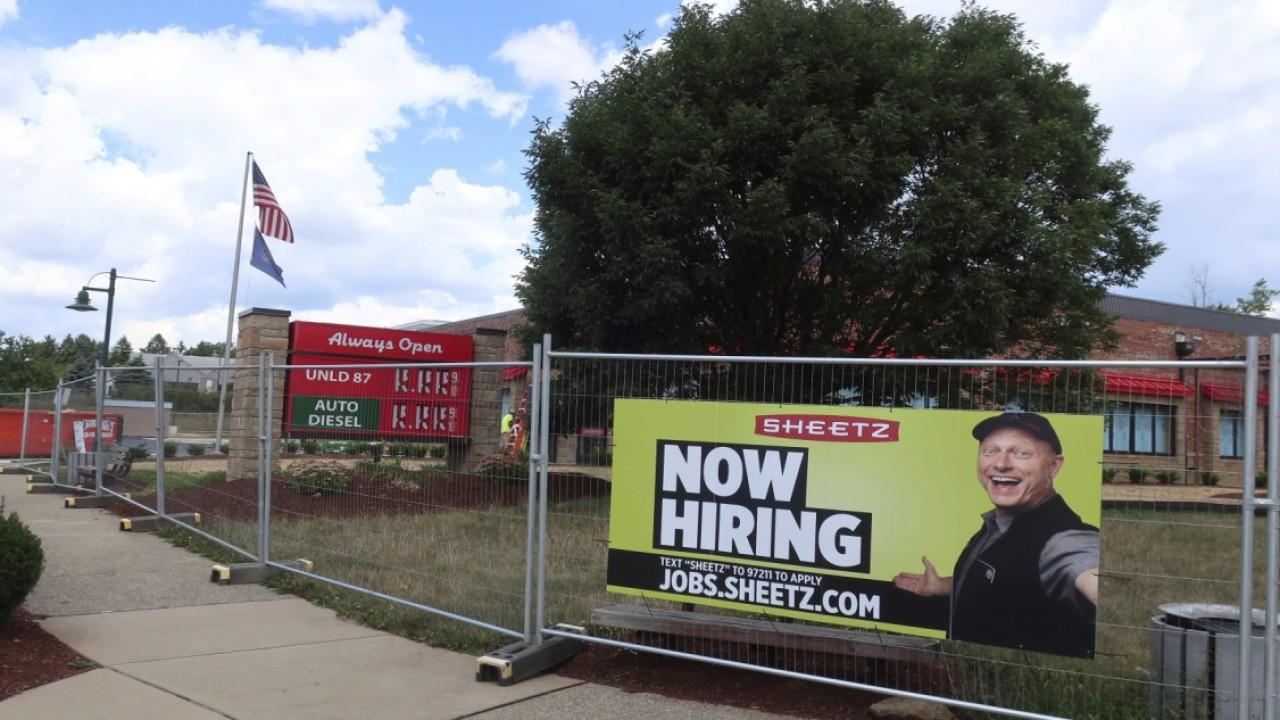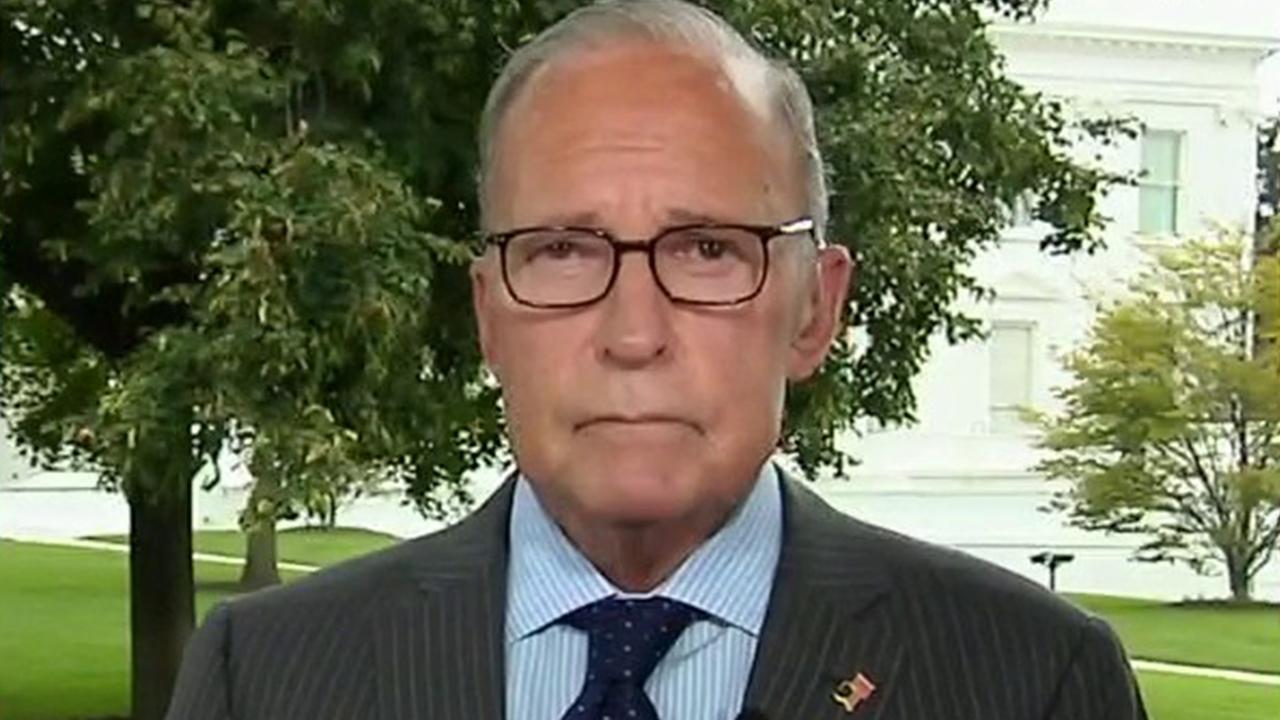What our leaders can do to serve stakeholders, get Americans working again: IBM Executive Chairman Rometty
Both government and business leaders share an obligation to create more opportunities for Americans to build the skills they need
Just over a year ago, the leaders of America's largest corporations came together through the Business Roundtable to make clear that the purpose of our companies is to serve all of our stakeholders, not just shareholders.
Since then, the COVID-19 pandemic has put corporate commitments to customers, employees, suppliers and communities to the test. And in the midst of the most challenging economic conditions of our lifetime, we have seen countless companies stepping up, from donating computing power to accelerate scientific discovery to mobilizing global supply chains in order to mass-produce vaccines when they become available.
JOBS OF THE FUTURE: 10 FASTEST-GROWING OCCUPATIONS EXPECTED TO BE IN HEALTH CARE, TECH
But there is more to do. Our country is facing a workforce crisis on par with the Great Depression. There are roughly 16 million unemployed Americans drawing jobless benefits. Many of them come from disadvantaged communities and lack college degrees. And we expect that nearly half of them will not be able to return to the same jobs they left.
Both government and business leaders share an obligation to create more opportunities for Americans to build the skills they need to land promising jobs that will be in demand in the post-COVID economy. It’s a daunting challenge. But there is a clear path to success.
JOB GROWTH OVER NEXT DECADE EXPECTED TO BE SLOWER THAN AFTER 2008 CRISIS, LABOR DEPARTMENT SAYS
Here's where we should start:
Hire for skills, not just degrees
Despite high unemployment, millions of jobs in American companies remain unfilled. Many of them are in technology’s fastest-growing areas, including cybersecurity, cloud computing and artificial intelligence, or AI, to name a few. And many of these high-paying, high-skilled jobs do not require college degrees.
Companies are looking for workers who have acquired in-demand skills through coding camps, community colleges or modern career education programs, not necessarily traditional four-year degrees. For example, almost half of the current IBM US job openings don't require a bachelor’s degree.
US PRIVATE EMPLOYERS ADDED 428,000 JOBS IN AUGUST, SIGNALING SLOW RECOVERY FROM PANDEMIC
At IBM, we coined the term “new collar jobs” to describe this new kind of career where skills matter more than degrees. And by hiring and training employees who don’t have traditional college degrees, we sought not only to fill a hiring need but also to make the technology industry more inclusive, hiring people from all backgrounds, education levels and regions of the country. And we’ve recently carried that commitment forward by creating 1,000 new paid internship opportunities to help address the challenge of racial inequality.
Boost career-focused education funding: At the same time, our elected leaders must take immediate action to create long-term, 21st-century career pathways for Americans of all backgrounds
It should start with congressional action to boost career-oriented education funding. New funds should expand education and career opportunities for as many Americans as possible.
GET FOX BUSINESS ON THE GO BY CLICKING HERE
One proposal being considered by Congress for the next coronavirus relief package adds $15 billion for workforce development and technical education. This funding could, for just slightly more than the cost of a single aircraft carrier, help millions of unemployed Americans transition into new collar careers.
A significant portion of this funding should focus on making apprenticeships and pre-apprenticeships, a type of foundational training for those not yet ready for apprenticeships, available throughout the country.
Earn-while-you-learn apprenticeship programs are a proven model — IBM apprentices develop a new trade without incurring student debt.
They come from all backgrounds — U.S. military veterans, former nail technicians, former baristas. Our model is registered with the Department of Labor, and through our partnership with the Consumer Technology Association we provide frameworks, playbooks, and guidance for other companies to start their own apprenticeship programs. Nearly 40 leading companies have since extended thousands of apprenticeship opportunities nationwide.
Expand vocational curricula: Alongside existing degree offerings, our colleges and universities — in partnership with the private sector — should emphasize and expand vocational curricula that lead directly to good jobs. Innovative school models like P-TECH, which combines a high-school diploma and an associate degree, do just that.
P-TECH was created to strengthen regional economies and disadvantaged populations and is helping 150,000 students worldwide gain skills to get well-paying jobs.
Create a national credentialing system: And finally, we need to provide a standard, national infrastructure that allows job seekers and employers to share, recognize, and verify skills attainment
Right now, there's no uniform option for those looking for jobs to prove their skills to potential employers, beyond a resume or a degree. Through an initiative launched by the American Workforce Policy Advisory Board, IBM is using blockchain technology to build a digital credentialing system that could serve as a template for a national skills platform. If we simply reopen the US economy as we knew it before the pandemic and hope for the best, we will have created a larger divide, leaving behind far too many talented Americans — especially those from underrepresented communities.
Thankfully, some progress is being made. Just last month, 27 CEOs came together in a pledge to hire 100,000 New Yorkers from underserved communities over the next 10 years, and that includes job opportunities and apprenticeships for 25,000 students from the City University of New York.
It's a step in the right direction, and one that shows the positive impact of stakeholder capitalism that’s at the heart of the Business Roundtable's redefined statement on the purpose of a corporation.
If American businesses, together with policymakers and leaders in higher education, commit to modernize career education, training and hiring, and make stronger investments in skills education programs that put people on direct track for great jobs, we can realize the full potential of stakeholder capitalism, get Americans back to work and make our economy stronger for years to come. Ginni Rometty is executive chairman of IBM.
One year ago the CEOs of Business Roundtable adopted a new Statement on the Purpose of a Corporation declaring that companies should serve not only their shareholders but also deliver value to their customers, invest in employees, deal fairly with suppliers and support the communities in which they operate. Click here to read more about the one year anniversary of the pledge.
READ MORE ON FOX BUSINESS BY CLICKING HERE
























